No Regulation, Revoked Licence: Is Tradehall Safe to Use?
Abstract:In the fast-growing world of online trading, safety and regulation must always come first. Traders need to choose brokers that are properly licensed and follow the rules. Sadly, not all brokers meet these standards, and Tradehall is a clear example of this.
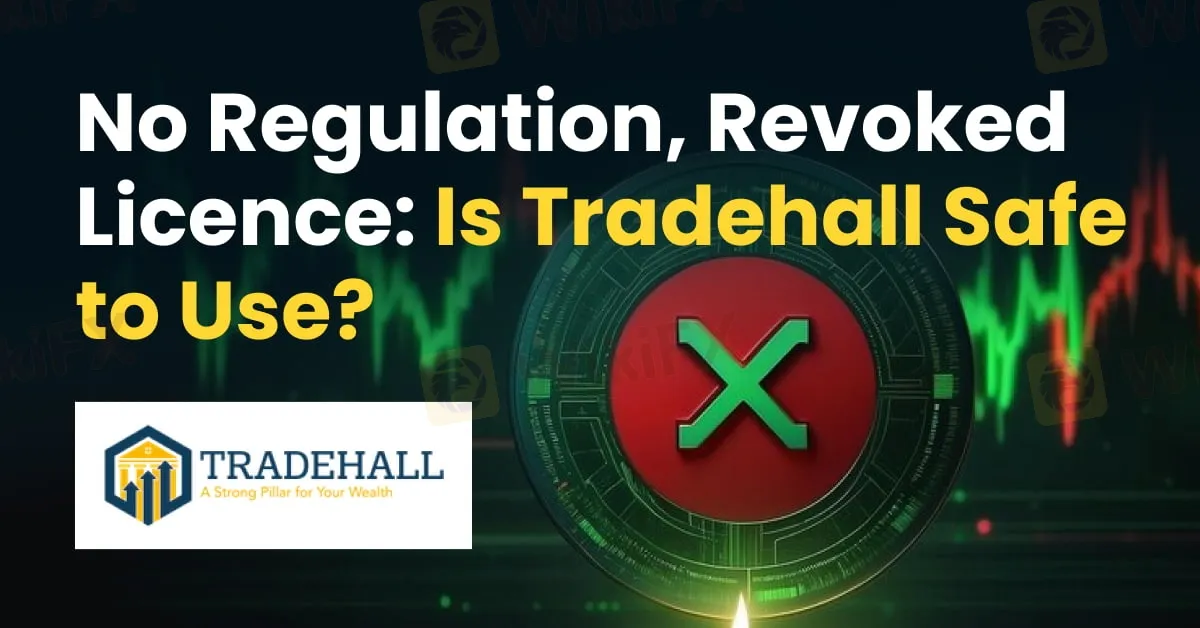
In the fast-growing world of online trading, safety and regulation must always come first. Traders need to choose brokers that are properly licensed and follow the rules. Sadly, not all brokers meet these standards, and Tradehall is a clear example of this.
According to WikiFX, a global platform that checks brokers and their regulatory status, Tradehall has a very low WikiScore of just 2.17 out of 10. This score reflects serious concerns about how the broker operates, and it should not be ignored by anyone thinking about using their services.

Tradehall is registered in Saint Vincent and the Grenadines, a location known for having no clear financial regulation for forex or trading brokers. While its legal to register a company there, being based in such a location usually means the broker is not properly supervised. This raises a major red flag for potential traders.
Even more worrying is the broker‘s licence history in Australia. Tradehall was previously listed under the Australian Securities and Investments Commission (ASIC) with licence number 001282038. However, this licence has now been revoked. This means the broker is no longer authorised to operate under Australia’s financial laws, which are known for being strict and protective of clients.

Adding to the concerns, the Securities Commission of Malaysia has also issued a warning about Tradehall. This means the broker has been flagged by another national authority, again urging the public to be careful.

Importantly, it has been confirmed that Tradehall currently holds no valid licence with any recognised financial authority. Without a licence, there is no legal guarantee that the broker follows fair trading practices or keeps client funds safe. Traders who use such brokers face much higher risks, including fraud, unfair pricing, or losing access to their money.

This situation should act as a clear reminder: just because a broker has a website or offers a trading platform doesn‘t mean it’s safe. Always check where a broker is registered, what licences it holds, and whether those licences are still active.
To sum up, Tradehall shows multiple warning signs, including a revoked licence, registration in an unregulated country, and official warnings from regulators. Traders should stay away from brokers with these kinds of issues. Do not take these red flags lightly. Your money and your safety depend on it.

Traders and investors can also use a free mobile application called WikiFX, which plays a crucial role in verifying the legitimacy of brokers and financial platforms. WikiFX provides an extensive database of global broker profiles, regulatory status updates, and user reviews, enabling users to make informed decisions before committing to any financial investment. Its risk ratings and alerts for unlicensed or suspicious entities help investors identify red flags and avoid potential scams. By leveraging tools like WikiFX to research a brokers background, individuals can safeguard their savings and minimise the risk of falling victim to fraudulent schemes.

Read more
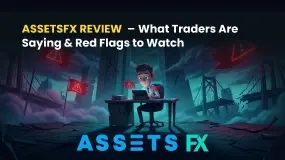
AssetsFX Review – What Traders Are Saying & Red Flags to Watch
Has AssetsFX stolen your deposits when seeking withdrawals from the trading platform? Did the broker fail to give any reason for initiating this? Did you notice fake trades in your forex trading account? Does the Mauritius-based forex broker deny you withdrawals by claiming trading abuse on your part? Did you also receive assistance from the AssetsFX customer support team? Firstly, these are not unusual here. Many traders have shared negative AssetsFX reviews online. In this article, we have highlighted such reviews so that you can make the right investment call. Take a look!
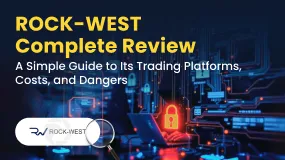
ROCK-WEST Complete Review: A Simple Guide to Its Trading Platforms, Costs, and Dangers
Traders looking for unbiased information about ROCK-WEST often find mixed messages. The broker offers some appealing features: you can start with just $50, use the popular MetaTrader 5 trading platform, and get very high leverage. These features are meant to attract both new and experienced traders who want easy access to potentially profitable trading. However, as you look deeper, there are serious problems. The good features are overshadowed by the broker's weak regulation and many serious complaints from users, especially about not being able to withdraw their capital. This complete 2025 ROCK-WEST Review will examine every important aspect of how it works—from regulation and trading rules to real user experiences—to give traders clear, fact-based information for making smart decisions.
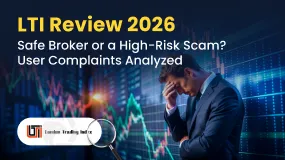
LTI Review 2026: Safe Broker or a High-Risk Scam? User Complaints Analyzed
When you search for terms like "Is LTI Safe or Scam," you are asking the most important question any investor can ask. Picking a broker is not just about fees or trading platforms; it is about trust. You are giving the broker your hard-earned capital, expecting it to handle it honestly and professionally. The internet is full of mixed user reviews, promotional content, and confusing claims, making it hard to find a clear answer. This article is designed to cut through that confusion.
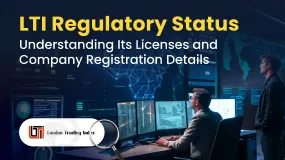
LTI Regulatory Status: Understanding Its Licenses and Company Registration Details
When choosing a forex broker, the most important question is always about regulation. For traders looking into the London Trading Index (LTI), the issue of LTI Regulation is not simple. In fact, there are conflicting claims, official warnings, and major red flags. According to data from global regulatory tracking platforms, LTI operates without proper regulation from any top-level financial authority. The main problem comes from the difference between what the broker claims and what can actually be verified. While LTI presents itself as a professional company based on London's financial standards, independent research shows a different story. This article will examine the claims about the LTI License, look closely at the broker's company structure, and analyze the warnings issued by financial watchdogs. Read on!
WikiFX Broker
Latest News
Solitaire PRIME Regulatory Status: Understanding Their Licenses and Company Information
Asia FX & Rates: JGB Yields Spike vs. China Capital Inflows
USD Crisis: Capital Flight Accelerates as Europe Pivots Away from 'Political Risk'
FX Movers: Yen Soars on Intervention Watch; CAD Tumbles on Trade Threats
Gold Pierces $5,000 Milestone; Pan African Resources Signals Cash Flow Surge
PRCBroker Review: Where Profitable Accounts Go to Die
Gold Breaches $5,110: 'Fear Trade' Dominates as Dollar Wavers
USD Outlook: Markets Eye 'Politicized' Fed Risks as Tariff Impact Deepens
Italian Regulator Moves to Block Multiple Unauthorised Investment Platforms
Yen Awakening: Intervention Risks and Real Rates Signal Structural Turn
Rate Calc

